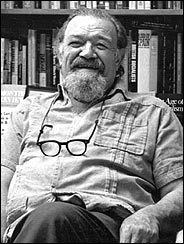A Quote by Katie Hafner
Tim Berners-Lee, the 44-year-old English physicist who created the World Wide Web, is precisely the kind of hero that a relatively simple invention with profound social and economic consequences should lay claim to. He is not just creative but democratic, diplomatic, polite and generous with credit and praise.
Related Quotes
I'm not a politician, and I do not think I am as effective in this way as people who actually prepare for it - is to focus on technical reform, because I speak the language of technology. I spoke with Tim Berners-Lee, the guy who invented the World Wide Web. We agree on the necessity for this generation to create what he calls the Magna Carta for the Internet. We want to say what "digital rights" should be. What values should we be protecting, and how do we assert them.
I think there certainly was a milestone in the '90s with regards to the Internet achieving critical mass. There were several magical factors that came together: the creation of HTML by Tim Berners-Lee, the drop in the price of communications, and all the PCs out there that you could put this software into.
So you want another story?" Uhh... no. We would like to know what really happened." Doesn't the telling of something always become a story?" Uhh... perhaps in English. In Japanese a story would have an element of invention in it. We don't want any invention. We want the 'straight facts,' as you say in English." Isn't telling about something--using words, English or Japanese--already something of an invention? Isn't just looking upon this world already something of an invention?
When we talk about the word 'socialism,' I think what it really means is just democratic participation in our economic dignity and our economic, social, and racial dignity. It is about direct representation and people actually having power and stake over their economic and social wellness, at the end of the day.
Coffee has assumed a social meaning that goes far beyond the simple black brew in the cup. The worldwide coffee culture is more than a culture - it is a cult. There are usenet newsgroups on the subject, along with innumerable sites on the World Wide Web, and Starbucks outlets populate every street corner, vying for space with other coffeehouses and chains. And after all is said and done, it's just the pit of a berry from an Ethiopian shrub.
What I saw quite clearly in the '80s, before the internet, was that the whole world was shifting toward digital formats, and that didn't matter whether it's movies or writing or whatever. It was something that was coming. And with the invention of the World Wide Web in the early '90s, when we were teaching our first courses, or the arrival of the internet by way of the browser, which opened up the internet to everybody - soon it was just revolutionary.






























